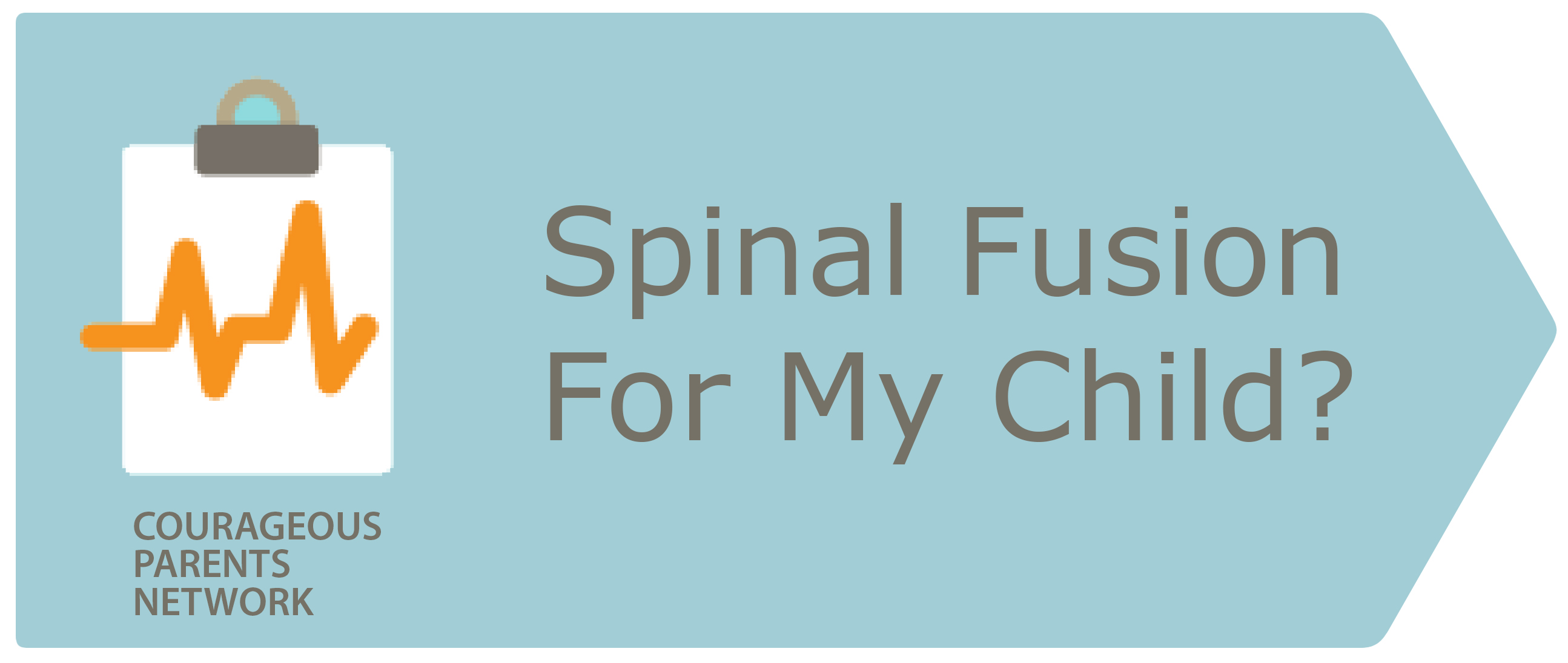10/29/2018
·Enable high contrast reading
Working at Doing it Better: A Guide for Decision-Making around Spinal Fusion Surgery

 Courageous Parents Network has been exploring the importance of communication, specifically the role and impact of language and words, in helping parents, children and medical providers connect with each other while navigating the harrowing caregiving journey when a child is seriously ill. When there are so many decisions to make, perspectives to consider, goals to unpack, and understandings to uncover, language and communication is how we do this work.
Courageous Parents Network has been exploring the importance of communication, specifically the role and impact of language and words, in helping parents, children and medical providers connect with each other while navigating the harrowing caregiving journey when a child is seriously ill. When there are so many decisions to make, perspectives to consider, goals to unpack, and understandings to uncover, language and communication is how we do this work.
It is against this backdrop that we are so enthusiastic about the new CPN-Boston Children’s Hospital Decision-Making Guide and Videos for Spinal Fusion Surgery, because its goal is to improve the communication and decision making process between family members and pediatric medical providers around the topic of whether spinal fusion surgery is right for an individual child. Just because a child could have the surgery doesn’t mean they should have the surgery. The Guide is part of a larger Quality Improvement project initiated by pediatric providers in the Complex Care Clinic at Boston Children’s Hospital who recognized that no one in the medical chain – from child to parent to surgeon to pediatrician to anesthesiologist – was being well-served by the existing process. “We can do better,” said Dr. Jay Berry, a general pediatrician and hospitalist who specializes in the care of children with medical complexity and is the lead on the QI Initiative at Boston Children’s Hospital.
I cannot emphasize enough how encouraged I was when Jay approached Courageous Parent Network to tell me about the QI project and ask for CPN’s involvement. How encouraging that doctors insist on finding a better way for children and families. How right that discovery of this better way should involve parents and families.
The core parent that put this together is Erin Ward, who had to go through the process for her son Will. Erin worked closely with Jay and the others to build the list of things for parents and providers to consider together and to draft the 6-Step Decision-Making Guide. “This is a tool that could help families develop their own pathway and help become a roadmap for their particular family. We are trying to make it really open and inclusive of all decisions that potentially could be made,” says Erin.
CPN then invited its parent community to provide feedback to the Guide, which 8 enthusiastic CPN parents did. Thank you!
The final step was the production of the videos by Courageous Parents Network to accompany the Guide. The videos feature Erin, Dr. Berry, and surgeon Dr. John Emans in conversation discussing the process from beginning to end with remarkable transparency and forthrightness about what can be truly known for sure, what can be hoped for, what can be prepared for, and what can be expected.
While my husband and I never had to consider this decision for our daughter, we know many CPN parents who have. Some parents chose the surgery, others did not. So often there are no right or wrong answers to these questions. Just choices that must be made with care, based on full information shared openly and frankly across time and via intimate conversations where the child’s and family’s particulars are honestly seen and considered. Parents and medical providers share the goal of doing what they hope is best for the child. They are on the same team. We hope this tool is a playbook of sorts for that team to help them do well with each other, for the child.
(The Guide itself is still in draft form, working its way through the QI process at Boston Children’ Hospital. We will release it when it’s ready: for now, the videos and the Guide’s Detailed Outline are available on Courageous Parents Network.) We hope you will please share with everyone you think would find them helpful.
P.S. We also hope this project becomes a model for other hospital-CPN collaborations on decision-making about medical interventions.


